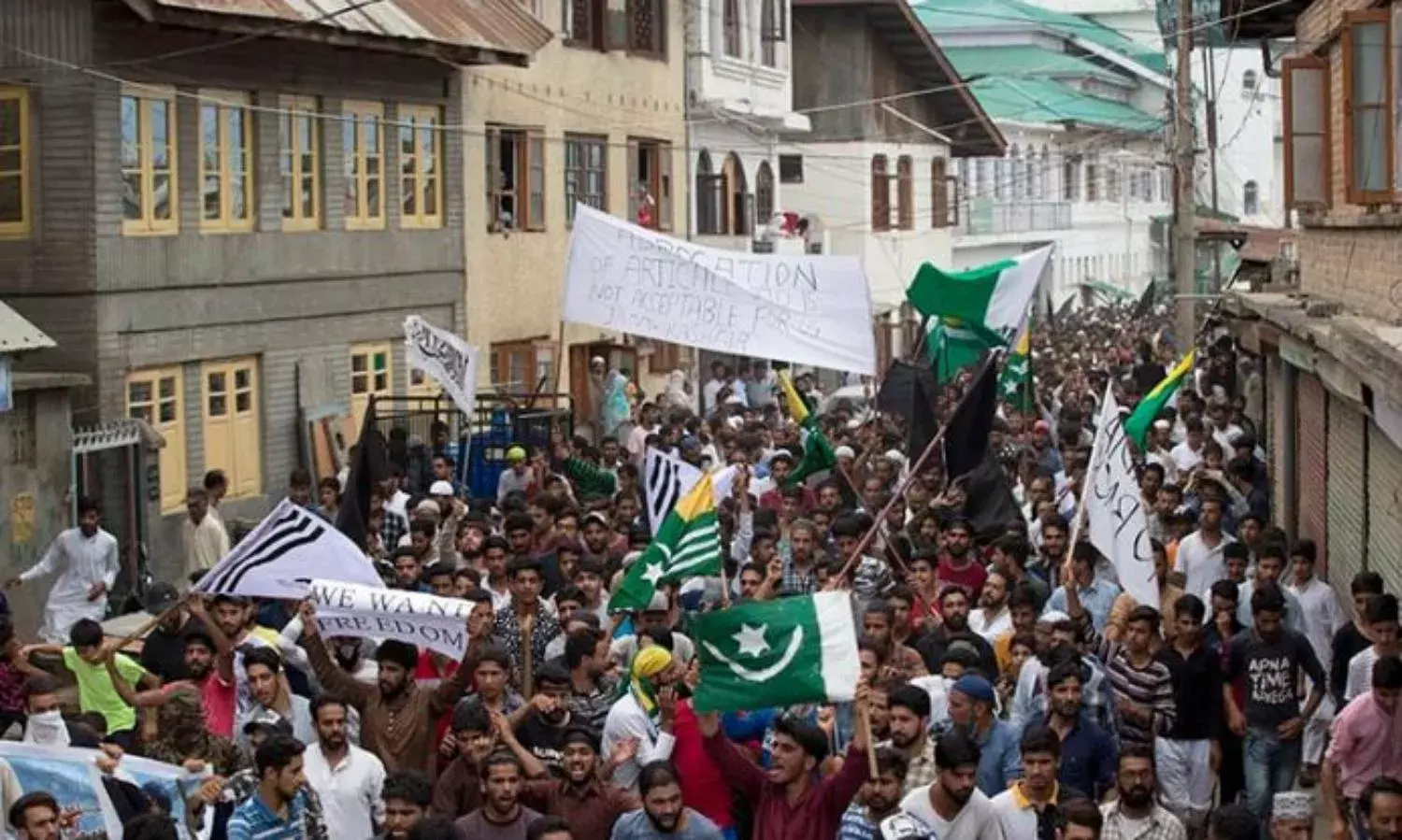Where Are The Kashmiris?
THE CITIZEN BUREAU

SRINAGAR/NEW DELHI: Reports of sporadic protests across Kashmir have been filtering through the clamp down on information but the slight relaxation in curfew to allow limited access to mosques for Friday prayers gave a peep into the future. Hundreds of Kashmiris swarmed into the streets to protest against the removal of Articles 370 and 35A, and the bifurcation of Jammu and Kashmir that has been wiped off from the face of India as a state.
These Kashmiris were not masked men, not religious leaders, just ordinary folk who came together in a determined bid to register their protest. This despite 43000 troops in the Valley, and visible presence of soldiers outside the homes. Srinagar is a fortress and despite the fact that has always been more peaceful than say Shopian, the Kashmiris ---old and young---burst through the barricades with grim faces. As an eyewitness told us, they were not even shouting slogans, just marching.
The people were dispersed by force and the scene shifted to the Maharaja Hari Singh hospital where patients with pellet gun injuries again started arriving. Eyes remain the casualty, with grim faced young men bearing the pain and the possible loss of eyesight. The decision of the authorities is again to minimise deaths till possible--although reports continue to circulate through the hospital corridors with doctors reluctant to talk as they know they are required there and do not want to be removed----and hence the pellet guns that maim and blind.
The tension is palpable. There is no laughter left in any home. No one knows what the morrow will bring. They only know this is not acceptable. There are no tears for the Hurriyat, or for the mainstream politicians, just for Kashmir and her future. At least 300 persons have been detained and according to local reports arrests are taking place every single day. Protests have broken out in Kargil, parts of Jammu, across Kashmir according to reports reaching Srinagar but given the information black out is being impossible to filter the truth from these. A parallel propaganda industry is alive in the rest of India painting a picture of peace and tranquillity, with children being shown holding hands or conversing with the uniformed soldiers being circulated on social media as the new truth.
The days for the Kashmiri in Srinagar begins and ends with darkness. While food is in stock, the real problem is for those suffering from ailments and needing medicine and medical care. A patient said that it took them hours to reach the hospital as they had to go through checks at short distances, and were amongst the fortunate ones to be able to persuade the soldiers to let them reach the hospital. Others were turned away, they said. And many did not even have the energy to try with no ambulances, no way of being taken to the hospital in a curfew that has ensured that the Kashmiris have no say in their future.
The voices from the few that The Citizen has been able to hear of Kashmiris in the Valley and outside have merged completely. Like all citizens of the world, the Kashmiris were not a monolith and as a journalist said, “we fought on everything, on individual politicians, on the right and wrong of resistance, on violence and peace, everything. But now these differences have evaporated. Just as the government has blurred the lines between the militants and the separatists and the politicians and the innocent people for us too now these lines do not exist. We are one, we have no future here.”
Those spoken to were not even keen to discuss the issue now. There is nothing to discuss, is the reaction. Political leaders like Ghulam Nabi Azad, Sitaram Yechury, D.Raja all went to Srinagar in what was a symbolic gesture of protest and were returned from the airport. The Citizen initially received messages from young Kashmiris “what is happening there, we cannot speak to our parents” but these too have dwindled. One of them when contacted said, “we know and you know what is there left to say.”
What indeed? As the Kashmiri voice has not been heard through the tumultuous days. The Kashmiri was not consulted about the decision, was not informed, was not involved in the debate in Parliament or outside, and has not been able to say a formal word on actions that have abolished the state that s(he) lived in.
Cover Photograph of protests on Friday Al Jazeera



